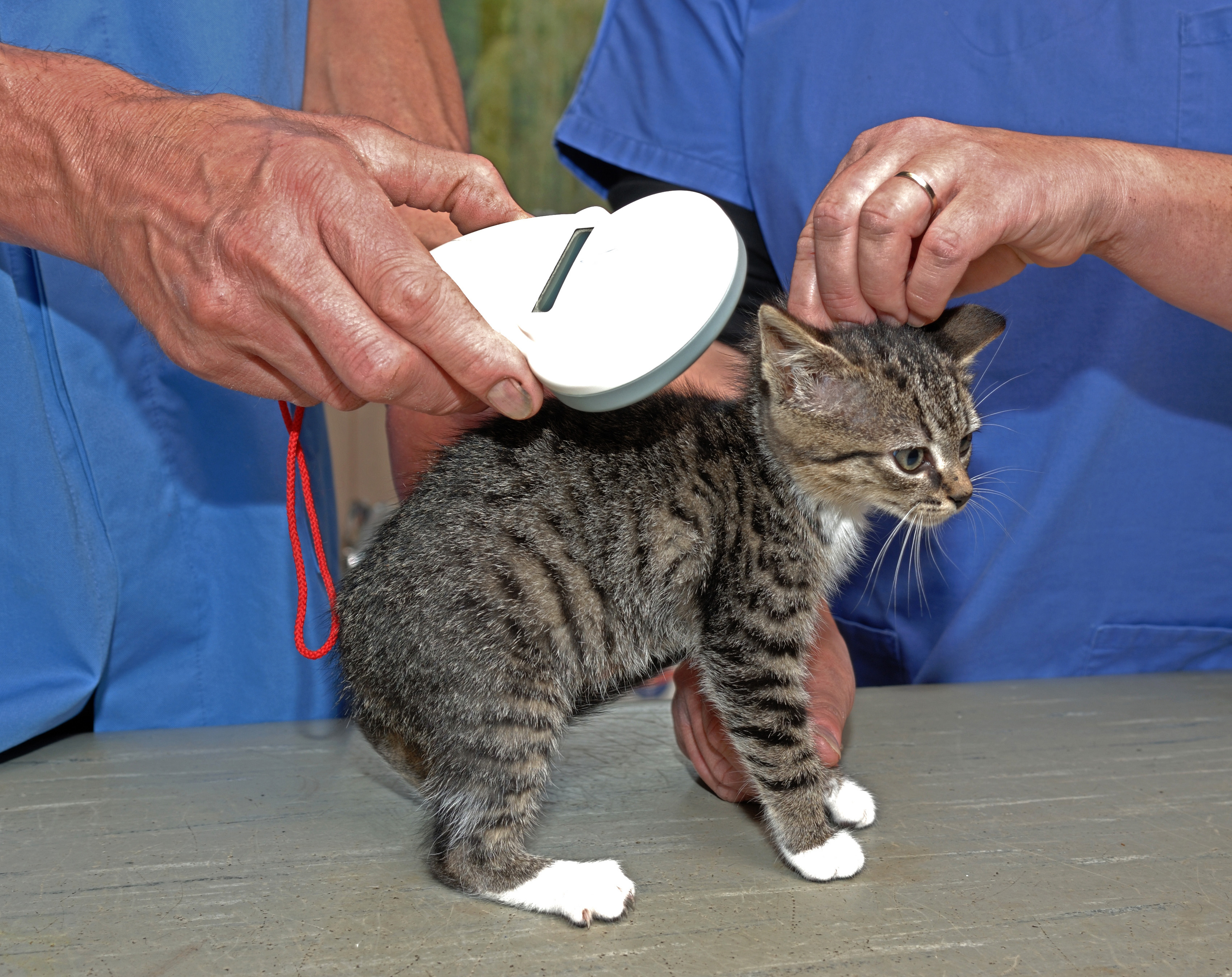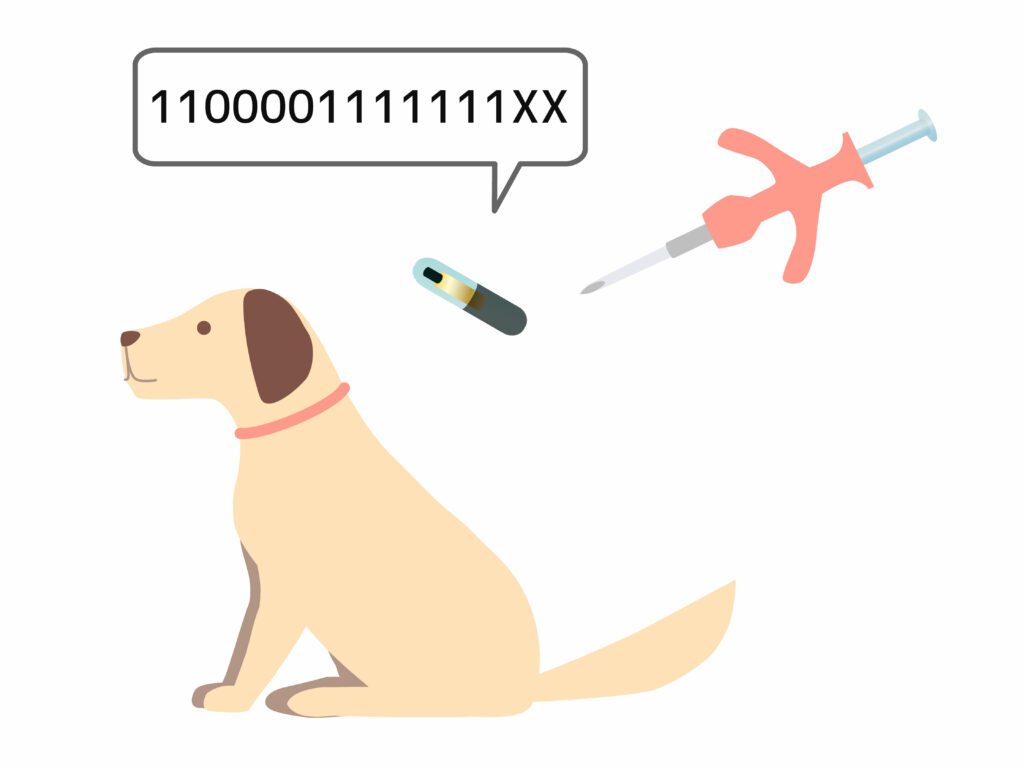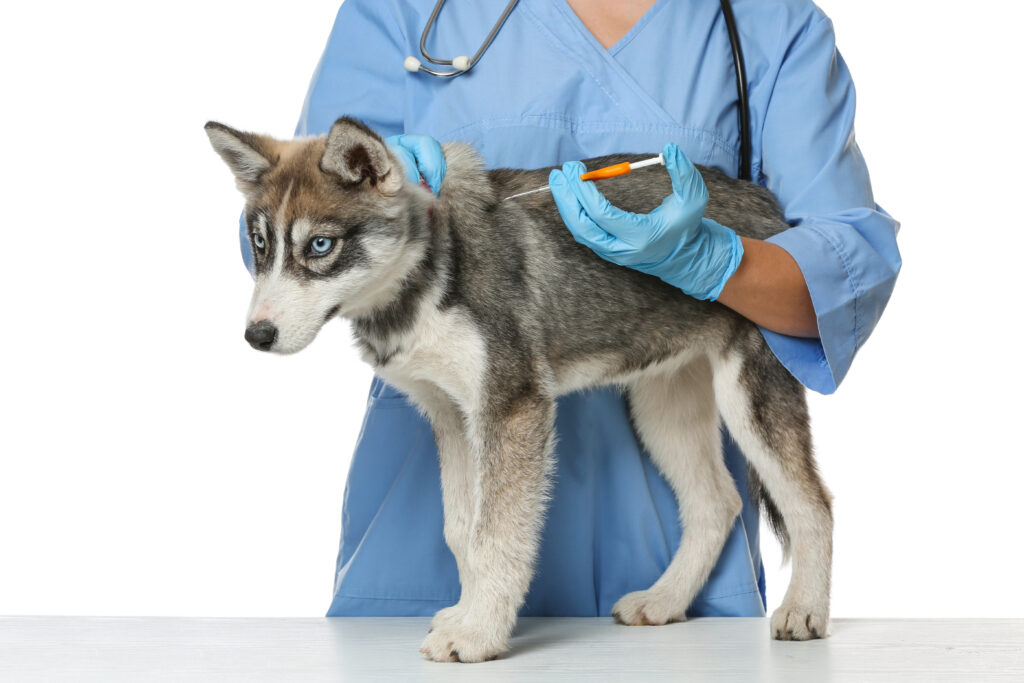
Written by: Rachel Holly
Every year, approximately 10 million pets are lost in the United States, with only a fraction ever finding their way back home. Thankfully, there is an easy affordable way to make sure your pet does not end up in these sad statistics. Microchipping offers a simple yet effective solution, significantly increasing the likelihood of your pet being reunited with you.
Why Microchipping Matters

Microchipping involves implanting a tiny, rice-sized chip under a pet’s skin, typically between the shoulder blades. This chip contains a unique identification number that can be scanned by veterinarians, shelters, and animal control officers to retrieve the owner’s contact information from a central registry.
Studies have shown that microchipped pets are far more likely to be returned to their owners than those without chips. Dogs with microchips are 2.4 times more likely to be reunited with their families, while cats are 21 times more likely. In a study involving over 7,700 stray pets, 72.7% of microchipped animals were successfully returned to their owners, compared to just 22% of non-microchipped dogs and 2% of non-microchipped cats.
The Microchipping Process

If you think the idea of injecting a chip in your pet sounds complicated or dangerous, it’s not. The procedure to microchip a pet is quick, safe, and minimally invasive. A veterinarian or trained professional uses a sterile needle to insert the microchip under the pet’s skin. The process is similar to a routine vaccination and causes little to no discomfort to the animal.
After implantation, it’s crucial for pet owners to register the microchip with their current contact information in a recognized database. This can be done sometimes at the vet office but usually the easiest way is simply doing it yourself online. Without proper registration, the microchip cannot be used to reunite lost pets with their families. Unfortunately, studies have found that a significant number of microchips are not registered or have outdated information, which can hinder the recovery process. It is important to update the information with the registry if you contact info changes or you move.
Every Reason to Do It

Microchipping is a vital tool in ensuring the safety and well-being of pets. It provides a permanent form of identification that can help lost animals find their way home. Responsible pet owners are strongly encouraged to have their pets microchipped and to keep their contact information up to date in the registry. This simple step can make all the difference in reuniting lost pets with their families.